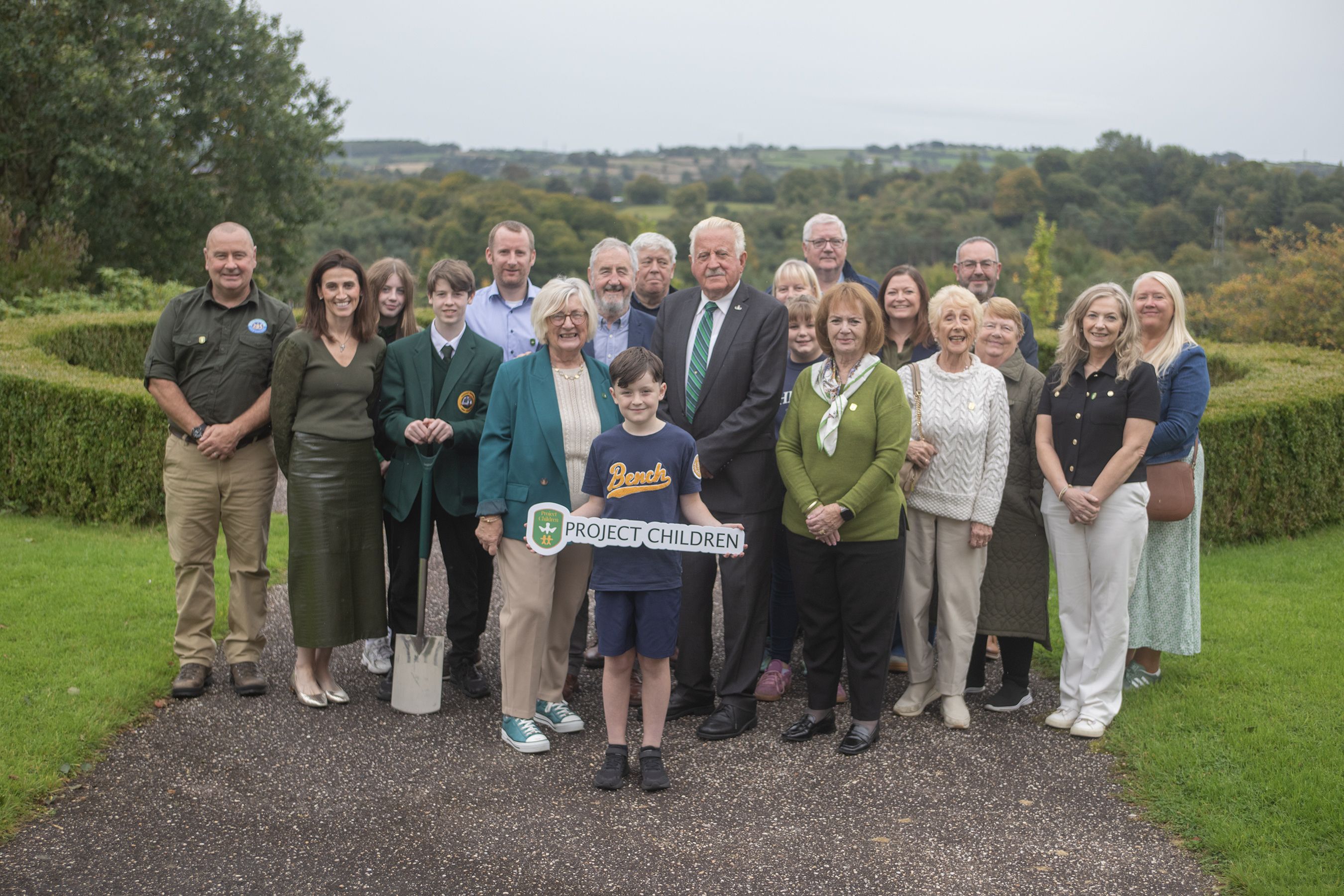VOLUNTEERS and co-ordinators of the groundbreaking Project Children scheme have been honoured 50 years on.
Founded by Denis and Patrick Mulcahy, both Cork natives who emigrated to USA and worked for the New York Police Department, they believed that if Protestant and Catholic children could spend time together in an environment that was not toxic with war that they would be less likely as adults to hurl bombs at each other – thus Project Children was born.
In 1975, they brought six children, three Protestant and three Catholic, to spend the summer in New York State.
The project went on to bring 23,000 children from Ireland to spend their summers with 16,000 host families across the USA before being brought to an end in 2015.
In 1995, The Project Children Internship program was started, initially bringing ten mature students each summer to the USA to work, live and volunteer, and it still continues today.
On Friday, a tree was planted at Malone House, Barnett Demesne in honour of the incredible dedication of Project Children co-ordinators in Belfast. Later, the Project Children film 'How To Defuse A Bomb' was screened at Ulster University.
Monica Culbert was a dedicated volunteer with Project Children. She was the main coordinator in the Belfast area and reflected on the 50th anniversary of the scheme.
"I have been involved myself in Project Children since 1978 and I am still involved in it. I was part of a small band of volunteers from all over the North," she said. "It is actually quite unreal to think that this programme was started 50 years ago. We took 23,000 children away. Even when I say that now, I go, that is incredible.
"The tree planting is a way of remembering all the volunteers who helped bring the children to USA. It started in August when Denis planted a tree in Greenwood Lake to mark the first six children that came over in the summer of 1975. There will be a plaque put up at a later date.
"Next month, the Project Children archives will go on display in the peace campus in the museum in Monaghan and they will be on display for six months.
"When it started, I was asked to pick maybe five or ten children and then I went to the schools.
"When I look back on it, I don't think any of us thought when it started that it would become so big or that you would take so many children away or also the effect that it had on children and their families.
"Children began to get used to each other when they were away and they brought different ideas back. I believe it did an immense amount to help towards peace and reconciliation.
"We were helping children get respite for six weeks, a holiday really. We were also helping their parents not be terrified that something might happen to them. They were maybe getting a phone call once a week from their children. People trusted us to keep their children safe which shows they were willing to do it because they children needed it.
"I still meet people today who were part of Project Children and they talk about their happy memories and that for me is lovely to hear."






